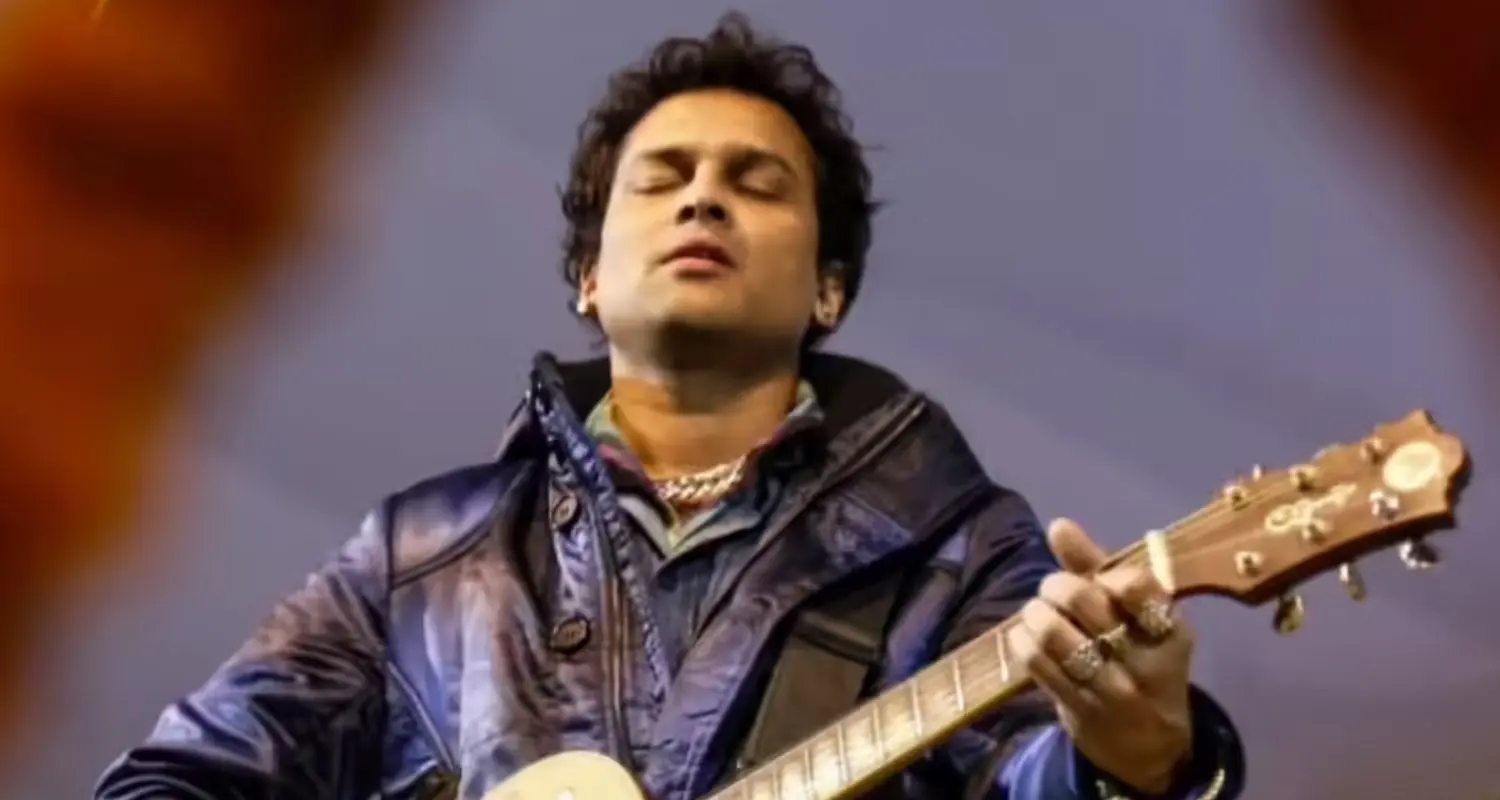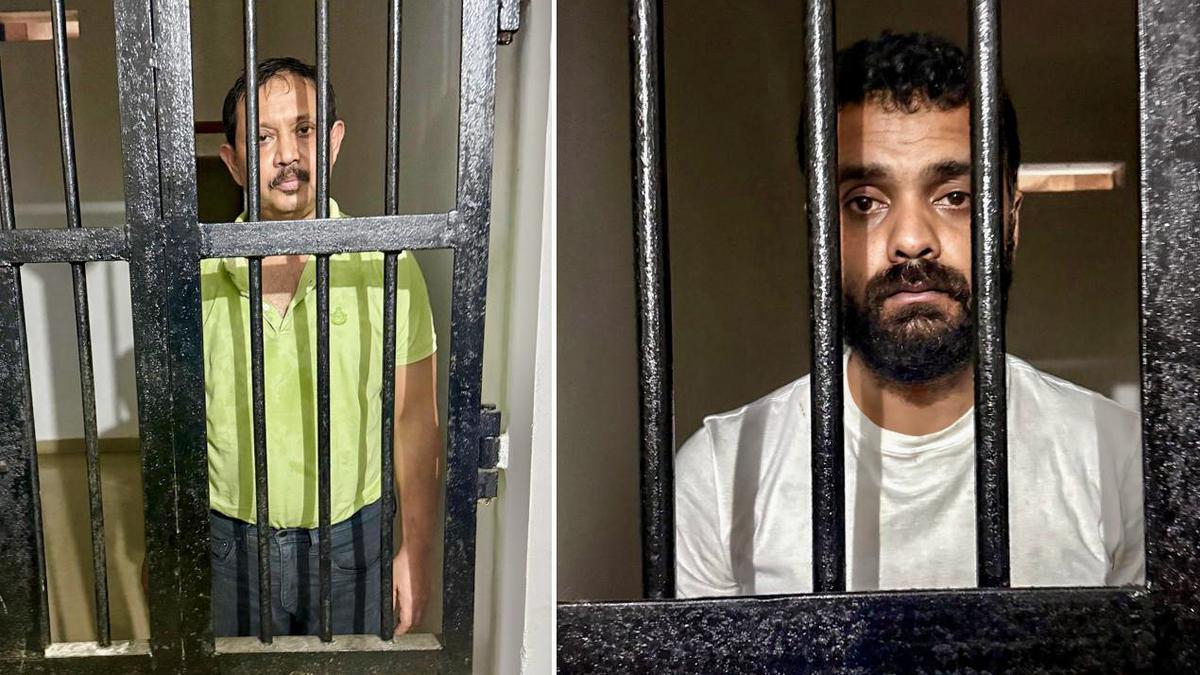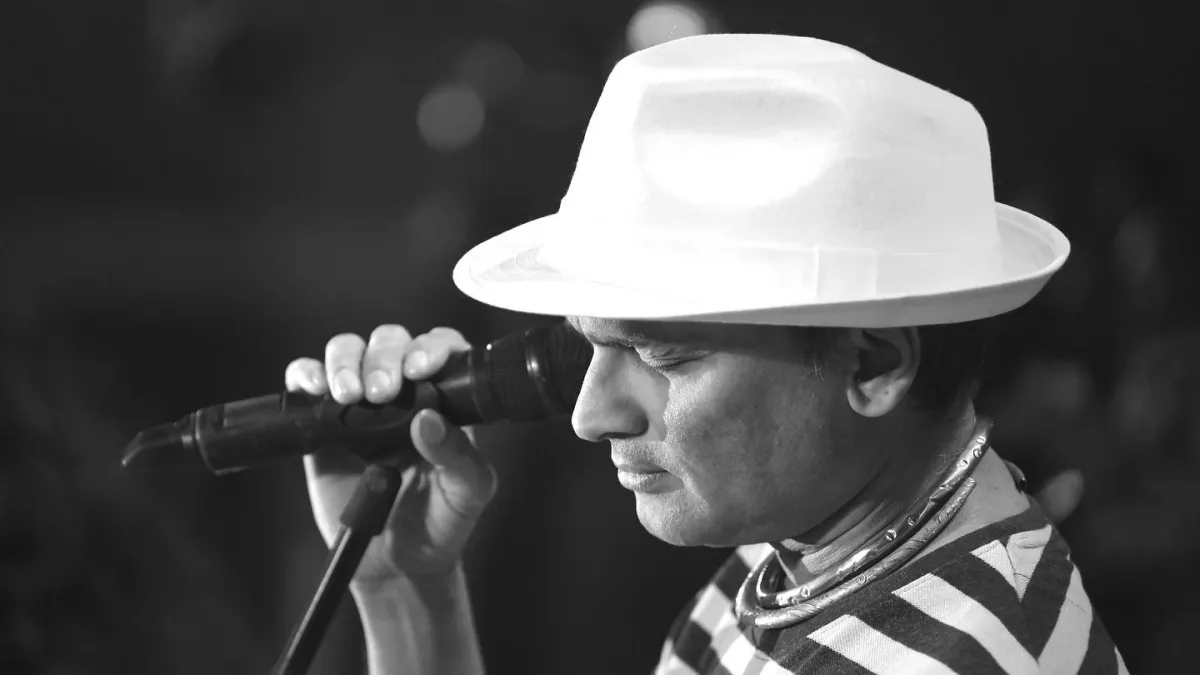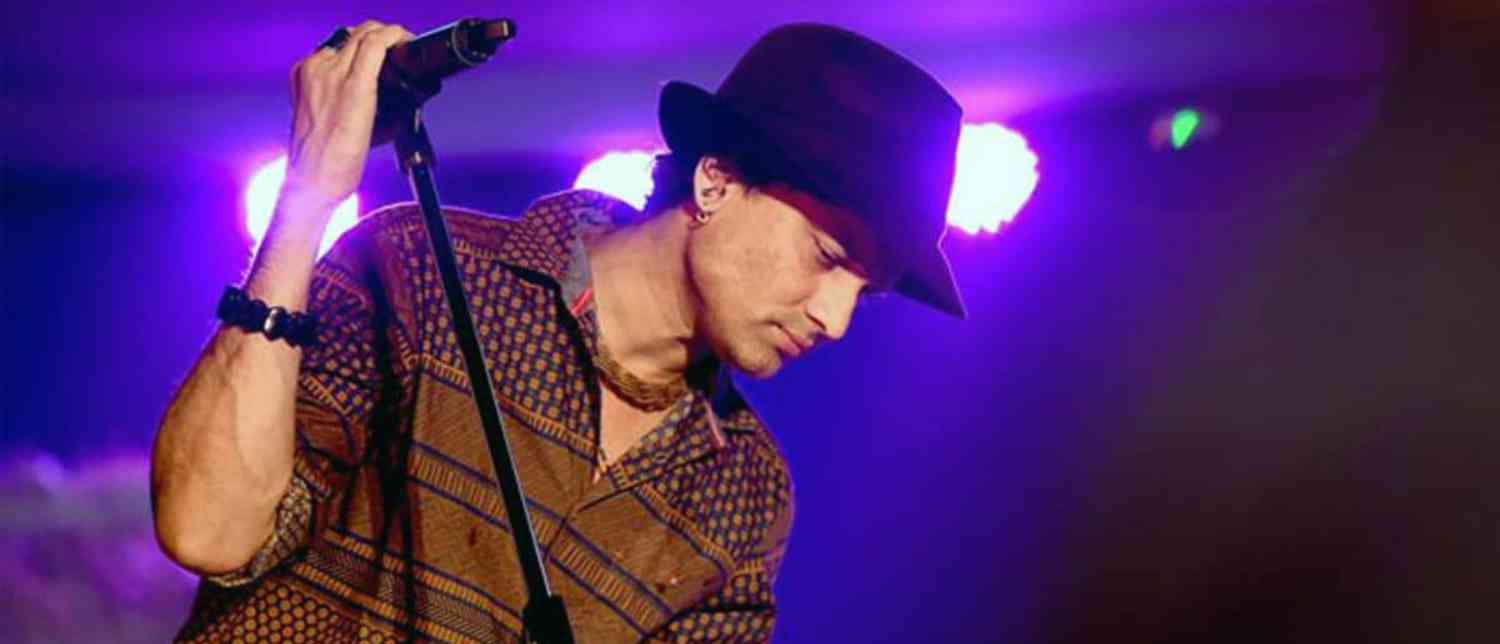The investigation into the sudden death of celebrated Assamese singer Zubeen Garg has taken dramatic and politically explosive turns. What began as an apparent drowning on September 19, hours before Garg was due to perform at the Northeast India Festival in Singapore, has evolved into a wide-ranging criminal probe that now includes murder charges, multiple arrests, public fury, legal action across Assam, and heated debate about accountability and spectacle.

Key developments and arrests
On Wednesday (following the September 19 incident), Assam Police arrested two men connected with Garg’s trip to Singapore:
-
Siddharth Sharma, Garg’s manager, was arrested from an apartment in Gurugram.
-
Shyamkanu Mahanta, manager of the North East India Festival, was detained after landing at Delhi airport on his return flight from Singapore.
Both men were brought to Guwahati for questioning and were later produced before a local court that sent them to police custody for 14 days. The Special Investigation Team (SIT) set up by the Assam government added serious charges. Munna Gupta, a senior officer from Assam’s Criminal Investigation Department who heads the SIT, said investigators had “added charges under Section 103 of the Bharatiya Nyaya Sanhita...” and explained, “Section 103 of the BNS deals with the punishment for murder.”
On Thursday, the SIT expanded arrests. Two musicians who were on the yacht with Garg — Shekhar Jyoti Goswami, his bandmate, and co-singer Amritprava Mahanta — were arrested and sent to 14-day CID custody as well. The police said both had been with Garg during the yacht excursion where he later went for a swim and was found floating face-down in the water near Lazarus Island, Singapore.
SIT sources noted that in video footage Goswami was seen swimming very close to Garg while Amritprava Mahanta recorded the incident on her cellphone. Both had been questioned over several days before the arrests.
Charges filed
The charges added against Sharma and Shyamkanu Mahanta are grave and include:
-
Murder
-
Culpable homicide not amounting to murder
-
Criminal conspiracy
-
Causing death by negligence
Munna Gupta told reporters, “The investigation is going on and I cannot share details at this time (but) we have added charges under Section 103 of the Bharatiya Nyaya Sanhita...” The SIT is also awaiting evidence from Singapore and has asked for formal permission to travel there to collect materials and corroborate timelines.
Forensics, drugs and the timeline
Singapore authorities conducted an autopsy and handed its report to the Indian High Commission; a second autopsy result was reported as pending at the time. On October 1, Singapore police provided the Indian high commission with a copy of Garg’s autopsy report, which confirmed that he died of drowning and ruled out the possibility of foul play. Despite that autopsy finding, Assam authorities continued pursuing a probe into events surrounding Garg’s final 48 hours.
Investigators have been particularly focused on some troubling details: pharmaceutical drugs were reportedly found in Garg’s bag, and the bag was in Siddharth Sharma’s possession. Those drugs were sent for laboratory analysis while the SIT tried to reconstruct a minute-by-minute timeline of Garg’s last two days — a timeline authorities describe as essential given the new criminal accusations.

Family and immediate reactions
Garg’s wife, Garima Saikia Garg, has publicly urged patience with the legal process while expressing a desire for the truth. When informed about the arrests, she told NDTV: “the law will take its own course.” She added: “We have to know what exactly happened. They should be questioned. The investigation is on, and the law will take its own course. And it will proceed that way. We all should cooperate.”
To ANI she later expressed faith in the justice system: “I have full faith that we will receive justice through our legal system, and the investigation will be conducted properly. We will soon learn what really happened that day, and we want to know who is guilty of what. If anyone is responsible, they will be punished very soon.”
Wider roster of people questioned
Beyond the four arrested, several people who were part of Garg’s inner circle and the Singapore trip have been questioned by investigators:
-
Shekhar Jyoti Goswami (bandmate) — arrested.
-
Amritprava Mahanta (co-singer) — arrested.
-
Sandipan Garg, the singer’s cousin (a deputy superintendent in the state police) — questioned.
-
Sekhar Jyoti Goswami (earlier referenced as Sekhar in some reporting) — questioned and later arrested.
-
Other associates and festival personnel have been called in as the SIT pieces together a complex chain of events.
Political flashpoints, FIRs and public fury
Garg’s death triggered an extraordinary public response across Assam. Tens of thousands gathered outside Guwahati airport to welcome the singer’s body home, followed a convoy to public viewings, burst into mass grief and song, and attended a state-honoured cremation on September 23 that included a 21-gun salute. The Assam government declared four days of state mourning and later announced plans to build a second memorial in Jorhat to permanently honour his contribution to music and cinema.
But public grief turned to anger and demand for accountability after rumours and accusations circulated on social media and television. In the days after the death, multiple First Information Reports (FIRs) were lodged — Press Trust of India reported more than 60 FIRs filed against Sharma and Shyamkanu Mahanta, accusing them of murder among other offences.
That anger was amplified by a high-profile government post. Senior cabinet minister Pijush Hazarika uploaded dramatic photos on X (formerly Twitter) of the two men behind bars and credited Chief Minister Himanta Biswa Sarma for “delivering justice.” Critics said the minister’s public statements essentially declared guilt before a trial and violated natural justice. Scholar Manoranjan Pegu wrote on X that “No conviction yet. But pictures already shared, which is a violation of rights of those accused.”
The outrage was not only verbal. Fans attempted to storm Siddharth Sharma’s apartment in Guwahati and reportedly pelted stones at police, prompting baton charges. Political reactions escalated: Chief Minister Sarma urged people not to incite violence, while the government blacklisted festival organiser Shyamkanu Mahanta, barring his events from receiving government grants, advertisements or sponsorships.

Accusations of exploitation and financial probes
Beyond the central question of criminal liability for Garg’s death, public suspicion focused on long-standing accusations that Mahanta and Sharma exploited the singer. Observers noted commercial ties and alleged unequal control over the singer’s intellectual property and earnings.
Sharma had been Garg’s manager since 2014 and was a partner with him in a company called Zubeen Garg Music, registered in 2021. Critics alleged exclusive control over rights to Garg’s work after his death. Sharma, before his arrest, posted a rebuttal on Facebook saying that “most of the 38,000 songs” that Garg had recorded “are owned entirely by other music labels and production houses. He himself never received money from them, apart from a few thousand rupees as one-time singing fees.” Sharma insisted that the company revenues were small and that “Zubeen da owned 60% of the LLP, and it will be my privilege to ensure that the remaining balance is also transferred to his family.”
Accusations against Mahanta went further: his niece, Srijani Bhaswa Mahanta, accused him of treating Zubeen as a “commodity.” In response to growing public pressure and accusations, Assam’s Criminal Investigation Department launched a separate probe against Mahanta for alleged misappropriation of government funds, money laundering, cheating and forgery.
Media, civil society and political appropriation
Prominent media personalities took an active role in amplifying suspicion and demanding swift action. Civil society organisations, including the All Assam Students’ Union, also publicly demanded answers. Samujjal Kumar Bhattacharya, the union’s chief advisor, said at a press briefing: “Zubeen was our national treasure, he was our diamond.” Bhattacharya and others highlighted Garg’s known health issues — including seizures and a prior head injury — arguing that those who organised and accompanied the singer should have prevented him from entering the water. He asked, “What is the responsibility of the manager Siddharth?” and held organisers accountable as well.
These comments and the flood of FIRs led the Assam government to transfer all cases to the Criminal Investigation Department and to form a Special Investigation Team (SIT) led by Munna Prasad Gupta to centralise and oversee the probe.
Political analysts noted that both Prime Minister Narendra Modi and Chief Minister Himanta Biswa Sarma publicly mourned the singer. Modi said: “He will be remembered for his rich contribution to music.” Sarma added, “Zubeen’s voice had an unmatched ability to energise people, and his music spoke directly to our minds and souls. He has left a void that will never be filled.” Commentators pointed out that Garg had often positioned himself outside partisan politics — describing himself as an atheist and a “social leftist” — even as his critiques of social issues and occasional opposition to BJP policies made his appropriation by political leaders more complicated.
Why Zubeen Garg mattered — and why his death hit so hard
Garg’s art and persona made him a uniquely unifying figure in a politically and ethnically divided state. Born in 1972 in Jorhat, Assam, to a writer father and singer mother, he began performing at the age of three. He achieved his first major breakthrough in 1992 with the Assamese album Anamika and went on to record more than 38,000 songs in multiple languages and dialects. His national breakthrough came with the 2006 Bollywood hit “Ya Ali” from Gangster: A Love Story, and he later won a national award for the non-feature film Echoes of Silence.
Beyond musical output, observers say Garg’s refusal to conform to a “tamed” or “cultured” image — his onstage candour, his blunt social commentary, and his willingness to challenge orthodoxies — made him beloved across religious and linguistic divides. As social media creator Dr Medusssa put it, “It is precisely because of Zubeen’s persona of being inclusive, and how he represented marginalised communities through his songs, that his legacy is being claimed by all.” Truck drivers, students in madrasas, poets, academics and politicians across Assam all mourned him; his songs were being played in mosques and schools alike.
Concerns about public trial and the rule of law
The speed and intensity of public outrage led to sharp concerns about due process. Legal observers cautioned that wide public vilification and the circulation of “people’s verdicts” risked prejudicing a fair trial. A Delhi-based criminal lawyer noted that “No clear evidence that Mahanta and Sharma had knowledge that allowing Garg to swim would ‘likely’ cause death. At most, negligence is established, not culpable homicide.” Critics warned that presumption of guilt in the media and on social platforms could subvert judicial processes.
Those fears acquired a dark edge as ultra-nationalist elements invoked violent rhetoric. In a video shared online on October 1, Shrinkhal Chaliha, leader of the Veer Lachit Sena, told reporters the accused had been “given death penalty in the people's verdict” and warned, “If they come out securing bail, the people will beat them to death. There are only two options – police will shoot them or the public will beat them to death.” Such statements underline the dangerous mix of grief, anger and vigilantism that the case has inflamed.
What’s next
The SIT has said it is ready to travel to Singapore to collect evidence and has sent formal requests through proper channels; they say this will take time. Laboratory analyses of the drugs found in Garg’s bag, forensic evidence from the yacht and testimony from those who accompanied him will all play crucial roles in determining whether the case will remain primarily one of negligence or escalate into proof of deliberate criminality.
For now, Assam is left to balance immense public grief and calls for immediate retribution with the slower, exacting machinery of criminal investigation and judicial process. As Munna Gupta repeatedly noted, the investigation is ongoing and many details remain under wraps. Amid the political posturing, public spectacle and online fury, the core questions remain painfully simple: what happened to Zubeen Garg in those last 48 hours, who bears responsibility, and will the legal system finally deliver a clear, evidence-based answer?
With inputs from agencies
Image Source: Multiple agencies
© Copyright 2025. All Rights Reserved. Powered by Vygr Media.






















